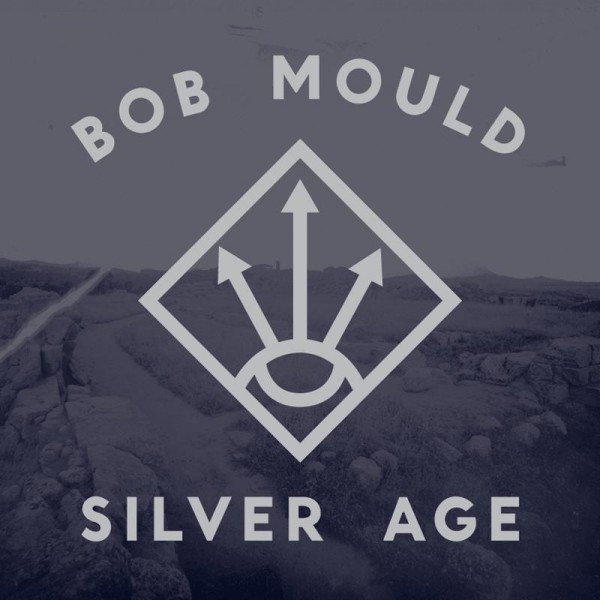Bob Mould has made a rock record. Twenty years ago, this news would not be eyebrow-raising. It would be celebrated, sure, but not something that would surprise anybody. Rock music, after all, was Bob Mould’s bread and butter, from the thrashing hardcore of early Hüsker Dü to the aggressive guitar pop of his most successful post-Hüsker project, Sugar. His solo career since Sugar’s dissolvement in 1995 has seen Mould exploring everything from folk to electronic, but it’s important to remember that there was a time when Mould was a master at appropriating pop songs into a rock/punk context. Important, because he’s at it again with Silver Age.
Silver Age, when you get down to it, has a relatively simple approach. Fresh off playing with the Foo Fighters live last year, Mould became hungry to make rock music again, and with the 20th anniversary of his most commercially successful album, Sugar’s Copper Blue, approaching, what would be a better thing to do than put together a new band and release a Sugar-esque record? So that’s exactly what he did. Silver Age utilizes all of Sugar’s defining epithets: crunchy, overdriven guitars, a full-throttle approach to pop songs, and relatively clean production, to fine effect. This album is, for all intents and purposes, the sequel to Mould’s work with Sugar.
Take leadoff track “Star Machine,” which cruises on meaty guitar chords for the length of its running time, and features an assertive vocal take from Mould that establishes Silver Age’s aggression right out of the gate. The album’s title track rises from the ashes of feedback at the end of “Star Machine,” and continues “Star Machine”’s foot-on-the-gas-pedal approach, as does “The Descent,” and “Briefest Moment,” and “Steam Of Hercules,” and each track that follows on Silver Age. In the hands of a less experienced artist, such an unabashedly rocking approach has the potential to grow monotonous, and it does to a minor degree on the album’s back half. But this is mostly prevented by varied transitioning, a pleasant surprise that also helps separate Silver Age from Mould’s Sugar records. The end of “Briefest Moment,” for example, cops an unexpectedly windy whoosh that ascends into “Steam Of Hercules” perfectly. It’s a small touch, but on an album marked by similar instrumentation for its entirety, these little things matter.
If there’s one constant in Bob Mould’s career, it’s poignant lyricism, and this is also worth noting on Silver Age. Disintegrating relationships are at the forefront of the subject matter, as Mould addresses nameless characters with both regrets and accusations of injustice. He covers a wide range on the spectrum of breakup-related moods, from overt bitterness (“Silver Age”) to unwavering determination (“First Time Joy”), but while breakups may be an oft-covered subject (both by Mould himself and in general), the subject matter is livened up by Mould’s cryptic lyrics. On excellent lead single “The Descent,” Mould sings “I didn’t want to play the song/ That gave people so much hope,” which is a rather strange statement to hear from a man responsible for such empowering and uplifting songs as “Helpless” and “Could You Be The One?” It’s meant as nothing more than a simple metaphor for not wanting to be in the spotlight, but the double entendre of Mould actually being a songwriter and having written songs that give people hope gives it an unusual extra dimension.
Silver Age is the rejuvenation of Bob Mould. It’s a refinement of what he accomplished with Sugar, and is arguably the most consistently engaging album he’s made since Copper Blue. One could level the criticism that the ground Silver Age walks on is worn; that stylistically, this album is a retread of pop-punk sounds that have been played out already by dozens of bands. But that would be dismissive of what Mould brings to the table as a songwriter; plus there’s, you know, the fact that he helped invent this whole pop-punk schtick in the first place, both with Hüsker Dü and Sugar. And if Bob Mould doesn’t have the right to make an unabashed rock record in his own vein in 2012, who does?

